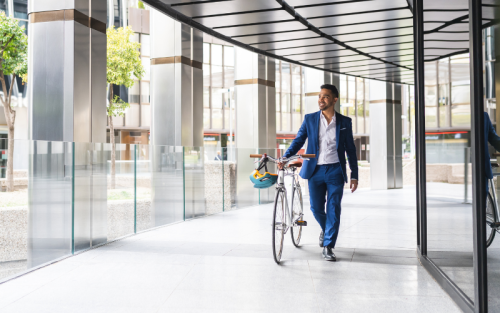Is green mobility a viable option for SMEs?
With social and tax measures, the government has paved the way for a sustainable mobility policy in companies. Is sustainable mobility a viable option for SMEs? Are they ready for the greening of their mobility? Acerta, Etion and VKW Limburg surveyed about 560 SMEs in their six-monthly SME work barometer. What did the survey teach us?
Waiting attitude
The majority of SMEs (83%) have no idea today of the costs associated with the new measures on company cars. Nevertheless, they are already thinking about greening their fleets, or some are even taking action. Four out of ten SMEs with company cars expect all their company cars to be emission-free by 2026. However, more than half admit that 2026 is not feasible, and 4% plan to retire their company cars by 2026.
Will all commercial vehicles have to be electric after 2026? When it comes to new company cars/leasing contracts, yes. But after 2026, it is quite possible that commercial vehicles will still be running on fossil fuel, because the leasing contracts from before 2026 will continue. The time pressure will be felt more as 2026 draws nearer. For the time being, however, it is still uncertain how taxation will evolve in the future, so a wait-and-see attitude among SMEs is certainly not surprising.
3-2-1 start... with charging stations
If everyone wants to drive electric, it is important that there are enough charging points. The first step towards fleet electrification, is therefore the installation of charging stations. In the course of 2022, a quarter of the SMEs will already start installing charging stations at work. Four out of ten SMEs do not yet have a plan to install charging stations. The small and medium-sized enterprises are also wondering whether they should provide charging station facilities at employees' homes. For companies, there are currently no ready-made solutions. A roadmap can certainly help them.
The mystery of the mobility budget
Half of the SMEs (53%) do not know the conditions of the mobility budget. However, the mobility budget will be greatly simplified and made more flexible from 2022 onwards. In addition, there will be more focus on sustainable transport options within the mobility budget. The intention is to increase the popularity of the system.
Sustainable is attractive
Green mobility is good for our planet, and it is also good for your corporate image. In times of labour shortages, your company image can make the difference, because the labour shortage is making itself felt very strongly, also among SMEs. Eight out of ten (83%) SMEs expect that it will be (very) difficult to find suitable personnel in the next six months. Investing in sustainability can then be an additional asset that enables you to recruit new employees and retain your current staff in these times of labour shortages. Will you also be making it a win-win situation?
What does greening mean for your fleet?
Our experts are ready to inform, advise and support you.

Written by
Senior Consultant Acerta


